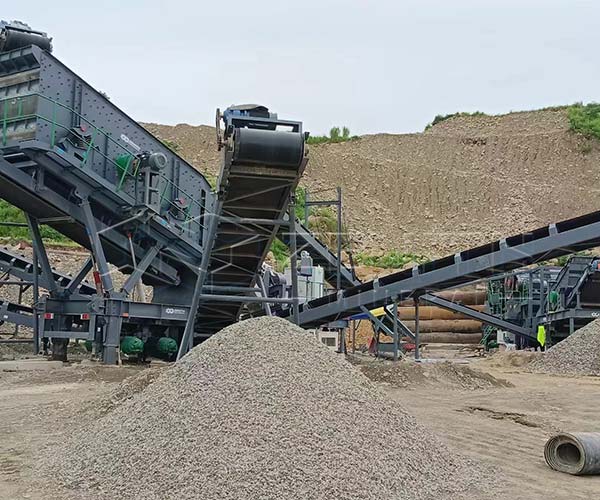
Mobile crushers represent a pivotal advancement in aggregate production, offering portability and efficiency for on-site material processing. In Ethiopia, where mining and construction sectors are expanding rapidly, these machines have become indispensable.
The demand surge stems from Ethiopia’s economic growth, with quarrying investments boosting the need for reliable crushing solutions. As urbanization accelerates, mobile units provide flexibility for contractors facing site relocations.
Ethiopia’s diverse geological profile necessitates a range of mobile crusher types, each tailored to specific operational demands and material characteristics.
These are entry-level units for coarse crushing, processing feed sizes up to 500mm at 50-80 tons per hour (tph). They feature robust frames for high-abrasion environments.
Ideal for primary stages in gold mining or basalt quarries.
Models like Zenith’s PE series integrate feeders and screens for standalone operation.
Designed for secondary and tertiary crushing, they deliver 100-150 tph with adjustable output sizes down to 6mm. Their hydraulic systems allow quick settings changes.
Suited for producing high-quality aggregates for asphalt in road projects.
Zenith’s K3 series emphasizes safety and efficiency in variable-hardness ores.
Versatile for medium-hard rocks, achieving 80-120 tph with impact blow bars for uniform particle shapes. They often include recycling features for construction waste.
Zenith’s PFW series offers energy savings of up to 20% over traditional models.
Selection depends on rock type and output needs; for instance, jaw-cone combinations yield comprehensive plants for 100-120 tph lines in limestone processing. Ethiopian buyers favor Chinese imports like those from Zenith for their balance of durability and adaptability.
Basic models exclude advanced screens, keeping prices under USD 200,000.
Fully integrated units with feeders add 10-15% to the base cost.
Ethiopian importers report averages around USD 320,000 for Zenith equivalents.
High-capacity variants for 130-180 tph approach USD 400,000 with hydraulic adjustments.
Zenith’s 120-150 tph models start at USD 180,000 for railway-grade materials.
Capacity and Specifications: Higher tph ratings correlate with elevated costs; a 50 tph unit saves 30-40% over 150 tph models due to simpler mechanics.
Automation features like IoT monitoring add USD 20,000-50,000.
Logistics and Import Expenses: Sea freight from China incurs 15-20% surcharges via Djibouti ports, compounded by inland trucking in Ethiopia’s terrain.
Market demand from infrastructure booms further inflates prices during peak seasons. Buyers can mitigate via bulk imports or leasing, potentially cutting ownership costs by 20%.
Navigating purchases in Ethiopia requires foresight to maximize ROI amid rising operational demands.
Assess site-specific needs: Opt for tracked models in remote mining areas to avoid relocation fees exceeding USD 5,000 per move.
Conduct feasibility studies; a 100 tph plant recoups investment in 12-18 months via aggregate sales at ETB 500-800 per ton.
Source wisely: Engage dealers like Zenith’s East African branches for bundled financing at 8-10% interest.
We have jaw crushers, impact crushers, cone crushers, sand makers and so on.
Mon - Sun, 0:00 - 24:00
24h Online Service
© Zenith. All Rights Reserved. Designed by
